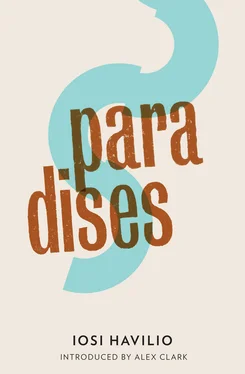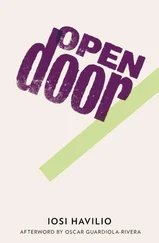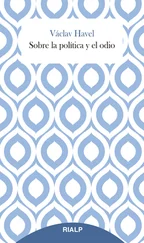Iosi Havilio - Paradises
Здесь есть возможность читать онлайн «Iosi Havilio - Paradises» весь текст электронной книги совершенно бесплатно (целиком полную версию без сокращений). В некоторых случаях можно слушать аудио, скачать через торрент в формате fb2 и присутствует краткое содержание. Год выпуска: 2013, Издательство: And Other Stories, Жанр: Современная проза, на английском языке. Описание произведения, (предисловие) а так же отзывы посетителей доступны на портале библиотеки ЛибКат.
- Название:Paradises
- Автор:
- Издательство:And Other Stories
- Жанр:
- Год:2013
- ISBN:нет данных
- Рейтинг книги:3 / 5. Голосов: 1
-
Избранное:Добавить в избранное
- Отзывы:
-
Ваша оценка:
- 60
- 1
- 2
- 3
- 4
- 5
Paradises: краткое содержание, описание и аннотация
Предлагаем к чтению аннотацию, описание, краткое содержание или предисловие (зависит от того, что написал сам автор книги «Paradises»). Если вы не нашли необходимую информацию о книге — напишите в комментариях, мы постараемся отыскать её.
is an almost perfect novel." — Albert Camus's
reimagined with a female lead in in twenty-first-century Buenos Aires.
Recently widowed, a young woman leaves the countryside for Buenos Aires with her four-year-old son where she seeks to build a new life for herself. She finds work in the zoo and moves into the human zoo of a squatted tower block at the invitation of one of its residents, to whom she acts as nurse, giving morphine injections.
Paradises — читать онлайн бесплатно полную книгу (весь текст) целиком
Ниже представлен текст книги, разбитый по страницам. Система сохранения места последней прочитанной страницы, позволяет с удобством читать онлайн бесплатно книгу «Paradises», без необходимости каждый раз заново искать на чём Вы остановились. Поставьте закладку, и сможете в любой момент перейти на страницу, на которой закончили чтение.
Интервал:
Закладка:
It’s Yuri and Olga, uncle and aunt of Draco, Iris’s boyfriend who went to the south and never returned. Yuri overplays his surprise, Iris and Olga sink into their chests, unashamedly externalising their unwillingness for this meeting to occur. They glance at each other, mutually accusatory, as if one of them had planned it. It is impossible to avoid them, and we approach. Iris greets them with three kisses, cheek to cheek. She introduces me, I say hello with my hand and go after Simón who is running off towards the riverbank.
Squatting on this beach of rubble, debris and hardened litter, I catch a glimpse of a future that’s bad but not terrible. I allow my gaze to roam, from the horizon to my now bare feet, from my feet to a regatta of sailing boats crowded near the middle of the river and back, right here, to a group of boys bathing amidst the twisted iron. I turn my head for an instant and the cut-out of the city, blurred behind the vapours exhaled by the earth, gives the impression of another future, more typical, without much mystery.
Simón goes to play by the water’s edge. I half close my eyes: voices, shouts that sound like pleas for help, a ship’s horn and the hum of the particles in the air which I imagine to be shaped like tiny embers. I turn round again to look for Iris. She’s still standing, with a weary expression, staring straight ahead. Like a young girl being scolded by her parents. I think about Draco, the story of the separation, whether she’ll be telling them how it all happened, or the opposite, whether they will be providing her with details. A crossroads of recriminations. Iris will reproach them for her boyfriend fleeing, they’ll complain that she didn’t accompany him southwards. She’ll talk about the cold, that’s why they are now measuring her up from under their brows as if saying that’s no reason to leave someone and inside they’ll be thinking: Abandonment for the sake of it; after everything, it’s fair enough. Iris has already seen me, I feel as though she’s about to call me over, she’ll want to include me in the conversation, I swiftly flick my gaze back to the chocolaty river. I wonder how you say abandonment in Romanian.
Simón has taken advantage of those seconds of distraction to escape from my sight. He’s hiding or being hidden by the landscape. One of the two is using the other. I’m not going to shout, I wouldn’t know how. I wait, to see if he appears, surely he’ll appear, but he doesn’t appear. I stand up and walk without alarm, accommodating my flip-flops between the holes and the stones. I look both ways, nothing. I’m no longer looking for Simón but for the green of his T-shirt. Any green. I let myself be deceived by false clues, but they don’t offer the right measurements, always the wrong width or height.
Left or right. I choose the bank, I take fifteen paces and I should be starting to worry, admit that he’s lost and ask for help, and then it’s almost as though someone places their hand on my shoulder, calling me. I turn my head and discover Simón next to a bush five metres from where I was sitting. I walk over to him. He doesn’t say anything or look at me with reproachful eyes. His face merely suggests a: Where were you going? I’d explain but best not to, it’s like Iris with Draco or Draco with Iris. You don’t know who left whom, who is the mother of the blame.
Simón guides me behind the bush and between two pieces of concrete rubble and some remnants of bricks rounded by the water, the wind and everyone’s footsteps, he shows me a small cemetery of beheaded dolls. Three, four centimetres long, made of ceramic, some with old-fashioned dresses, Egyptian, Asian, others naked, an army of little mutilated dolls awaiting burial or reanimation. Legs, arms, loose limbs as well. I think that someone must have reunited them, the river couldn’t put them together so painstakingly. Simón fills his arms with dolls and I don’t know why I censure him, I tell him not to grab so many, Not so many, I order, but I offer no reason. And he answers me with a look that says: Poor things. Yes, poor things.
I check that Iris is still with Draco’s aunt and uncle, but her attitude of ten minutes earlier, so fed up at having met his relations, is now one of happiness. In fact, she sees me and calls me over, arms open, almost euphoric. Yuri and Olga barely speak Spanish and when they do it takes quite some effort to understand them. Olga is ash blonde, with slim legs, freckled skin and severe eyes. Very similar to Iris, the antithesis of Yuri who never stops joking and laughs hard. I witness a litany of anecdotes and complicities which I try to guess from their expressions. Simón entertains himself with the little dolls, building them a cave in the sand. Hunger grabs us. Without consulting me, Iris decides that we’ll share lunch with them. Two picnics in one. We contribute our cheese, bread, salami and Coca-Cola. From them, hard-boiled eggs, pâté, more bread and a bottle of pineapple cider which they have brought in a foil cooler. Yuri tells us that it’s hullabaloo every night in the hotel where they live. He says hullabaloo with an incredible accent, as if he were beating his tongue against the skin of a drum. Always something, he says, and I think I understand him saying that a few weeks earlier a woman fell from a balcony on the building and embedded her head in the roof of a taxi. Olga, who as I will find out later is Yuri’s second wife, he has at least twenty years on her, laughs with her hand over her mouth. Iris pulls a disgusted expression.
We scoff everything in minutes. We toast with the pineapple cider, which despite the thermal bag is warm when it reaches my mouth. The conversation continues but I throw myself down with my face to the sky, the voices reach me without translation, in a strange but transparent register, in which words are beyond meaning. At one point I could swear Iris is telling them the story about the fat woman who got jammed in the hanging walkway in the subtropical rainforest. The phrasing, the highs and lows, the exclamations, remind me of the way she told me.
The sun changes position and leaves us without protection. We react in unison, forced into movement by the glare. Simón? Right here, burying the little dolls. A moment of indecision: over there, further this way, in that little wood, I suggest. In the end, Yuri and Olga go their own way. The goodbye is short and cold, as if resentment has finally won over. We take a path cutting through the reed bed as far as a flowering ceibo tree. Canetti again, and his catalogue of trees. Simón doesn’t take long to fall asleep. We lie on the grass, feet up on a bench, blood on a steep slope to the brain. In silence, we are bewitched by the network of leaves and flowers that separates us from the sky, until our eyes close. In my dream, brief, very brief, a small, flattened bird appears to me, its feet separated from its body. And yet it moves, dragging itself like a reptile.
The need to pee cuts short my siesta. I walk a few metres along a trail, I lower my trousers and knickers, squat and release an effervescent stream of piss that smells of pineapple cider. Through the pampas grass, I see the smudge of an animal passing, making the ground crunch, a chinchilla, a rat or a weasel. I can’t make it out. Closer to me, a hole, the burrow. I don’t lie down again, I sit next to Iris, who is still sleeping, her skin tattooed by a thousand nervous filigrees: all the shadows of the ceibo . I observe those features of hers, from other lands. I start caressing her head, I use my fingers as a comb to clear her face of hair. I smooth her eyebrows, I measure her lashes and notice those tiny hairs magnified on her lips, a little blonde moustache, microscopic. I stay like this for a while. Suddenly, frightening me, as if instead of waking her I had set fire to her, her eyes open, she looks straight at me. She smiles when I jump and I pass my hand over her forehead again. She lets me do it. That night at Christmas and some fantasies come to my mind, and very naturally the need rises in me to kiss her. She sees it coming and doesn’t stop me. She reacts belatedly, when our lips are almost brushing. She moves my mouth away brutally, gripping my jaw. It disconcerts me, not the rejection, but the fact that it was expressed like that. So violently.
Читать дальшеИнтервал:
Закладка:
Похожие книги на «Paradises»
Представляем Вашему вниманию похожие книги на «Paradises» списком для выбора. Мы отобрали схожую по названию и смыслу литературу в надежде предоставить читателям больше вариантов отыскать новые, интересные, ещё непрочитанные произведения.
Обсуждение, отзывы о книге «Paradises» и просто собственные мнения читателей. Оставьте ваши комментарии, напишите, что Вы думаете о произведении, его смысле или главных героях. Укажите что конкретно понравилось, а что нет, и почему Вы так считаете.











